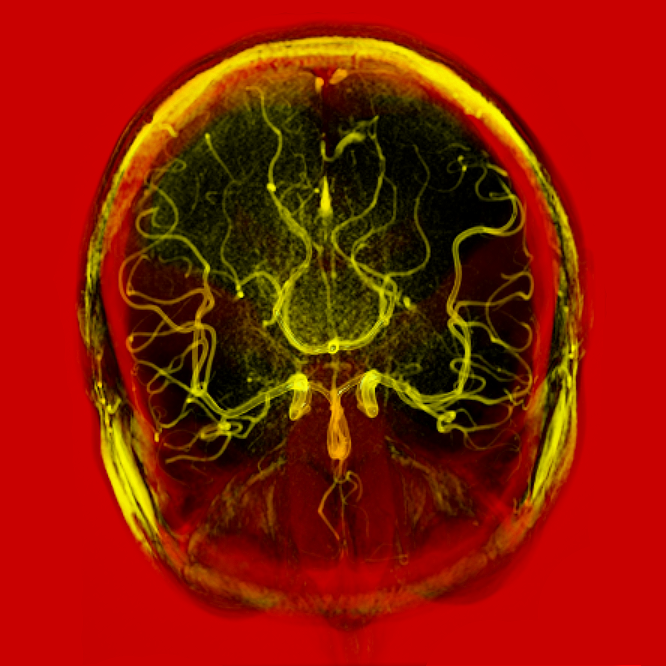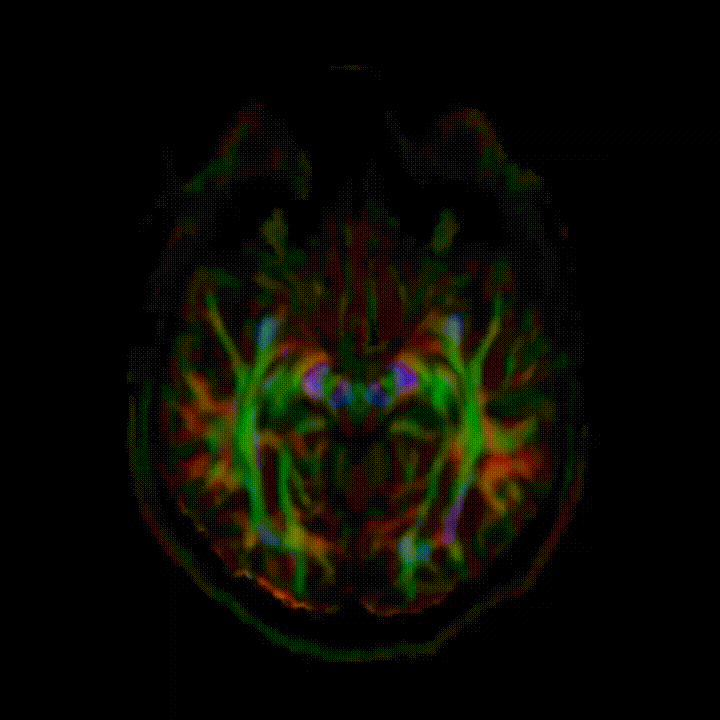
TOM EVERSHED
Tom Evershed is a British writer working with the disquiet. He lives in Melbourne with his wife, Kate, and works at Swinburne University of Technology.
Mandragora/The Hand of Glory
Genesis 30:14–17
Something wrong was growing in her sister’s garden. From the window, in the gleam of the moon, Leah saw it sprouting by the lemon tree, its pale heart clutched in dark foliage.
It was something that could not be there.
Jake still slumbered, broad back bare, in his and Rachael’s bed. Leah felt no guilt. The man had been hers before her sister took him. Only Leah had borne his child.
Hauling tight her dressing gown, she opened the bedroom door and trod barefoot down the passage. She skulked past the room where Roo lay sleeping, resisting the temptation to look in on him.
Fatherhood had come too soon for Jake. By keeping the baby, Leah had known what she was ending. For six months, their relationship had hung, gibbeted, at a crossroads of possibilities; then Jake had moved in with Rachael. Leah had dragged her swelling body through the days and nights like a corpse.
She could have been angry at them. Instead she kept them close. Jake could be around for Roo, and Leah could be around Jake.
As the years had passed, Leah’s heart still stuttered when she was near him. Electricity danced on her skin. She had waited so long for a moment such as this, with Rachael away on business. When her hand had reached out for Jake it seemed to bear a light only she could see; then he had seen it too.
She went out to the garden, clicking shut the door behind. She could smell rain.
By the lemon tree grew the rosette of a stemless plant. Its leaves were dark and crinkled. At its centre the flowers were moonlight blue, furled tight like skulls.
Only that morning, walking in the fields, Roo had found some twisted roots. He had wanted to plant them in Jake and Rachael’s garden. They had dug in the ground by the lemon tree and buried them deep.
Leah stepped closer, feet on cool grass, biting her lip. She nearly called out to Jake, but it had to be a dream.
She scooped her hands beneath foliage, around the plant’s base, and pulled. At first there was nothing; then a loosening, the crackle of green filaments torn apart. She pulled harder, feet braced, knuckles pressing into the soil. Up it came in a burst of earth: purple-faced, eyes screwed shut, screaming.
Genesis 30:14–17
Something wrong was growing in her sister’s garden. From the window, in the gleam of the moon, Leah saw it sprouting by the lemon tree, its pale heart clutched in dark foliage.
It was something that could not be there.
Jake still slumbered, broad back bare, in his and Rachael’s bed. Leah felt no guilt. The man had been hers before her sister took him. Only Leah had borne his child.
Hauling tight her dressing gown, she opened the bedroom door and trod barefoot down the passage. She skulked past the room where Roo lay sleeping, resisting the temptation to look in on him.
Fatherhood had come too soon for Jake. By keeping the baby, Leah had known what she was ending. For six months, their relationship had hung, gibbeted, at a crossroads of possibilities; then Jake had moved in with Rachael. Leah had dragged her swelling body through the days and nights like a corpse.
She could have been angry at them. Instead she kept them close. Jake could be around for Roo, and Leah could be around Jake.
As the years had passed, Leah’s heart still stuttered when she was near him. Electricity danced on her skin. She had waited so long for a moment such as this, with Rachael away on business. When her hand had reached out for Jake it seemed to bear a light only she could see; then he had seen it too.
She went out to the garden, clicking shut the door behind. She could smell rain.
By the lemon tree grew the rosette of a stemless plant. Its leaves were dark and crinkled. At its centre the flowers were moonlight blue, furled tight like skulls.
Only that morning, walking in the fields, Roo had found some twisted roots. He had wanted to plant them in Jake and Rachael’s garden. They had dug in the ground by the lemon tree and buried them deep.
Leah stepped closer, feet on cool grass, biting her lip. She nearly called out to Jake, but it had to be a dream.
She scooped her hands beneath foliage, around the plant’s base, and pulled. At first there was nothing; then a loosening, the crackle of green filaments torn apart. She pulled harder, feet braced, knuckles pressing into the soil. Up it came in a burst of earth: purple-faced, eyes screwed shut, screaming.
Coda
The dogs had perished days before, swallowed by a crevasse. His sledge was lost too, yet the creature had fallen clear. He had cursed his fate and continued north.
The air howled. The ice creaked. Snow crunched under his boots. His gut-gripping hunger had passed but the polar wind had blasted for two days, paring the parchment flesh from his cheeks. The glare was relentless and his eyes bloated in their sockets like carbuncles.
All this was of little consequence. He had been tracking a distant speck and it was coming closer.
Since leaping from the ship where his creator had died, the creature had lost track of time. Mostly, the land cycled monochrome with the days, from a white that pierced to a black that was absolute, then back again. Every shade of gloaming lay between, with the sky the same nothing as the land.
Sometimes, though, the stars came out and sprayed the night in faerie dust. On occasion, in the day, the sky would be blue, or transformed in festivals of pink or orange. Then, the creature’s desolate eyes grew wetter than usual.
He trudged on and the approaching dot was larger. He could better discern its shape and he sighed with the groaning of the restless ice. His hair hung in black daggers. In a mantra, he recited other names for icicles: water-ickles and ice-candles; conkabells and aquabobs.
In places the ice towered in white stacks with hearts of iridescent blue and green. Light swam in them like spirits trapped in shards of turquoise, or the universe in a bottle. They sang like the feathers of a fabulous bird, the flit of a dragonfly, the dash of a fish in a river; yet cold and hard, as though all those things were dead and turned to glass.
The creature watched it all. He spoke to the wastes and the wind. “Better to reign in Hell than serve in Heaven.” He looked around, taking in the bleakness with a smile. “The mind is its own place…”
One night, the black sky had been radiant with eels of green and purple. Their curves weaved through the ether, the heavens pirouetting over the ice. The creature had turned in circles, raising up his hands and laughing.
The approaching shape grew closer still. It was large, white and shaggy. At a certain distance, it began to lope.
The dogs had perished days before, swallowed by a crevasse. His sledge was lost too, yet the creature had fallen clear. He had cursed his fate and continued north.
The air howled. The ice creaked. Snow crunched under his boots. His gut-gripping hunger had passed but the polar wind had blasted for two days, paring the parchment flesh from his cheeks. The glare was relentless and his eyes bloated in their sockets like carbuncles.
All this was of little consequence. He had been tracking a distant speck and it was coming closer.
Since leaping from the ship where his creator had died, the creature had lost track of time. Mostly, the land cycled monochrome with the days, from a white that pierced to a black that was absolute, then back again. Every shade of gloaming lay between, with the sky the same nothing as the land.
Sometimes, though, the stars came out and sprayed the night in faerie dust. On occasion, in the day, the sky would be blue, or transformed in festivals of pink or orange. Then, the creature’s desolate eyes grew wetter than usual.
He trudged on and the approaching dot was larger. He could better discern its shape and he sighed with the groaning of the restless ice. His hair hung in black daggers. In a mantra, he recited other names for icicles: water-ickles and ice-candles; conkabells and aquabobs.
In places the ice towered in white stacks with hearts of iridescent blue and green. Light swam in them like spirits trapped in shards of turquoise, or the universe in a bottle. They sang like the feathers of a fabulous bird, the flit of a dragonfly, the dash of a fish in a river; yet cold and hard, as though all those things were dead and turned to glass.
The creature watched it all. He spoke to the wastes and the wind. “Better to reign in Hell than serve in Heaven.” He looked around, taking in the bleakness with a smile. “The mind is its own place…”
One night, the black sky had been radiant with eels of green and purple. Their curves weaved through the ether, the heavens pirouetting over the ice. The creature had turned in circles, raising up his hands and laughing.
The approaching shape grew closer still. It was large, white and shaggy. At a certain distance, it began to lope.

The Third Kind
Endless ranks of alien craft flashed like stars. Each salvo sent their silver fire lancing, dancing like lightning, splitting and reforming. It seared through space, crackled around his ship. He shot back lasers from his eyes, taking down two of the craft.
Mum twisted in the passenger seat. “Fancy a cookie, darling?”
He ignored her. Car headlights zipped by, the illusion broken. He narrowed his eyes at the streetlights and the aliens loosed their rays once more.
“Little brat,” said Scott. “He’s still sulking.”
“Should have got a babysitter,” said Mum.
They travelled on. He imagined if the aliens abducted him. The boss alien would roll its eyes and gnash its spiny teeth; but they would still fear him. If he promised not to kill any more aliens, they might free Mum from Scott and make her back how she used to be.
They drove into a tunnel. Red taillight drones led into its yellow blush; then white striplights hurtled them into hyperspace. A vehicle screamed by too close, coruscating blue lights like exploding alien attack craft. The tunnel flashed in every colour. Space was a kaleidoscope.
On they went to their destination. Disembarking, they joined a throng moving with purpose through the dark. Lanterns hung from branches and the path was edged by fire. From the borders, fleshy leaves groped. Illuminated trees scratched at the stars in green and red and ultraviolet. Angular limbs flickered and vines coiled.
He saw a man selling devices that twirled with multi-coloured LEDs. Tugging Mum’s hand, he pointed.
She said, “Can I get him a windmill?”
“He doesn’t deserve it, Kelly,” said Scott. “He’s been a little shit all day.”
“Pleeeease, Mummy?” he said.
“Sorry, darling.” Her eyes were sad. “You have been a bit naughty.”
He pulled his hand away. “It’s not fair.” He frowned. “I hate you!”
Scott moved towards him and he bolted. He dodged between strangers’ legs. Fires cackled. Mum called his name but he dashed into darkness.
Stumbling from the path, he hid behind a tree and pushed his fists into his eyes.
“You okay, mate?”
Looking up, he saw an unfamiliar face, all smile and beard.
“You want one of those toys?”
Sniffing, he nodded.
“I’ve got a bunch in my van. Come on. We’ll get you one.”
He looked around for Mum.
The man proffered a hand. “Come on, mate. What are you waiting for?”
Endless ranks of alien craft flashed like stars. Each salvo sent their silver fire lancing, dancing like lightning, splitting and reforming. It seared through space, crackled around his ship. He shot back lasers from his eyes, taking down two of the craft.
Mum twisted in the passenger seat. “Fancy a cookie, darling?”
He ignored her. Car headlights zipped by, the illusion broken. He narrowed his eyes at the streetlights and the aliens loosed their rays once more.
“Little brat,” said Scott. “He’s still sulking.”
“Should have got a babysitter,” said Mum.
They travelled on. He imagined if the aliens abducted him. The boss alien would roll its eyes and gnash its spiny teeth; but they would still fear him. If he promised not to kill any more aliens, they might free Mum from Scott and make her back how she used to be.
They drove into a tunnel. Red taillight drones led into its yellow blush; then white striplights hurtled them into hyperspace. A vehicle screamed by too close, coruscating blue lights like exploding alien attack craft. The tunnel flashed in every colour. Space was a kaleidoscope.
~
On they went to their destination. Disembarking, they joined a throng moving with purpose through the dark. Lanterns hung from branches and the path was edged by fire. From the borders, fleshy leaves groped. Illuminated trees scratched at the stars in green and red and ultraviolet. Angular limbs flickered and vines coiled.
He saw a man selling devices that twirled with multi-coloured LEDs. Tugging Mum’s hand, he pointed.
She said, “Can I get him a windmill?”
“He doesn’t deserve it, Kelly,” said Scott. “He’s been a little shit all day.”
“Pleeeease, Mummy?” he said.
“Sorry, darling.” Her eyes were sad. “You have been a bit naughty.”
He pulled his hand away. “It’s not fair.” He frowned. “I hate you!”
Scott moved towards him and he bolted. He dodged between strangers’ legs. Fires cackled. Mum called his name but he dashed into darkness.
Stumbling from the path, he hid behind a tree and pushed his fists into his eyes.
“You okay, mate?”
Looking up, he saw an unfamiliar face, all smile and beard.
“You want one of those toys?”
Sniffing, he nodded.
“I’ve got a bunch in my van. Come on. We’ll get you one.”
He looked around for Mum.
The man proffered a hand. “Come on, mate. What are you waiting for?”
